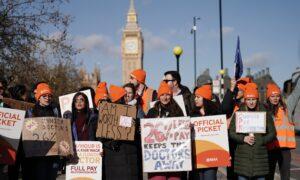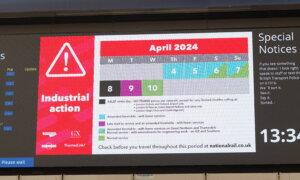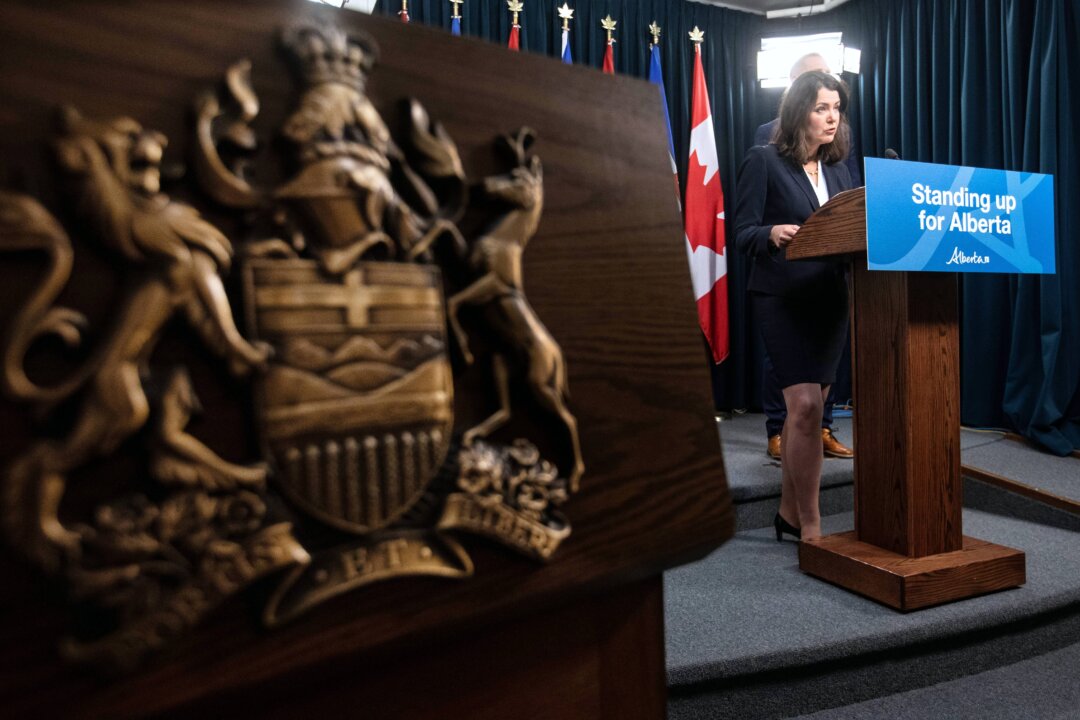ASLEF union members have overwhelmingly backed strike action, stemming from a two-year long dispute with the government over an increase in drivers’ salaries.
Rail passengers have been urged to check before they travel this week due to a series of one-day strikes staged by members of the train drivers union.
The industrial action over a pay dispute will see members of ASLEF union strike between Tuesday and Thursday, disrupting the service of numerous train operators in the country.
Among those affected are 2c, Greater Anglia, GTR Great Northern Thameslink, Southeastern, Southern/Gatwick Express and West Midlands Trains. The union also announced that its members will refuse to work non-contractual overtime from Monday to Saturday.
The latest industrial action comes following five years of dispute, during which train drivers haven’t received an increase in salary. Since the last pay deal with the government expired in 2019, ASLEF said its members deserve the rise, given the significantly increased cost of living.
The union and the Rail Delivery Group (RDG) haven’t held talks for a year. ASLEF hasn’t held negotiations with Transport Secretary Mark Harper since December 2022.
Last April, the union rejected an offer of an 8 percent rise over two years. Last year also saw the introduction of a new law to ensure minimum levels of service during strikes, but none of the train operators have applied to use it.
“It is now a year since we sat in a room with the train companies—and a year since we rejected the risible offer they made and which they admitted, privately, was designed to be rejected,” said Mick Whelan, ASLEF’s general secretary.
An RDG spokesperson has issued an apology for the service disruption caused by the “wholly unnecessary strike action.”
“It will also inflict further damage on an industry that is receiving up to an additional £54 million a week in taxpayer cash to keep services running, following the covid downturn,” the spokesperson said.
The group advised customers to check travel updates and revised timetables.
‘Dead in the Water’
ASLEF has warned that it won’t “back down” and will continue with demands of pay increase.
“The employers—and the government—think we are going to give up and run away. They’re wrong,” said Mr. Whelan.
He added that strikes would not take place if drivers thought that the government’s offer, which he said was “dead in the water,” was acceptable.
During the two-year dispute ASLEF has called 14 national one-day strikes. Research on the impact of overall industrial action on GDP has found that between June 2022 and April 2023, the cost was £1.4 billion, or £127 million per month.
In its response, the government passed the Strikes (Minimum Service Levels) Bill. Under the new law, minimum service levels have been imposed on public services during strike action. This includes passenger rail services, ambulance services and fire and rescue services.
According to business minister Kevin Hollinrake, the bill offered “an appropriate balance between the ability to strike, and protecting lives and livelihoods.”
The Trades Union Congress TUC called the bill “draconian” and warned it would lead to loss of jobs by workers who support industrial action.
Commenting on the latest series of strikes, a Department for Transport spokesman said: “ASLEF are the only union left striking after the government oversaw deals with all the other unions. Instead of causing passengers disruption, they should put this offer to their members and work with industry to end this dispute.”
Mr. Whelan said that the decision to kick off another round of strikes was “overwhelmingly” supported by ASLEF members.
“The difficulty is that nobody wants to be on strike and nobody wants to be losing money. But having said that, everybody has the right to have a pay rise at some point. How long do you go without a pay rise?” he said in an interview with Sky News.














 English (US) ·
English (US) ·  Turkish (TR) ·
Turkish (TR) ·